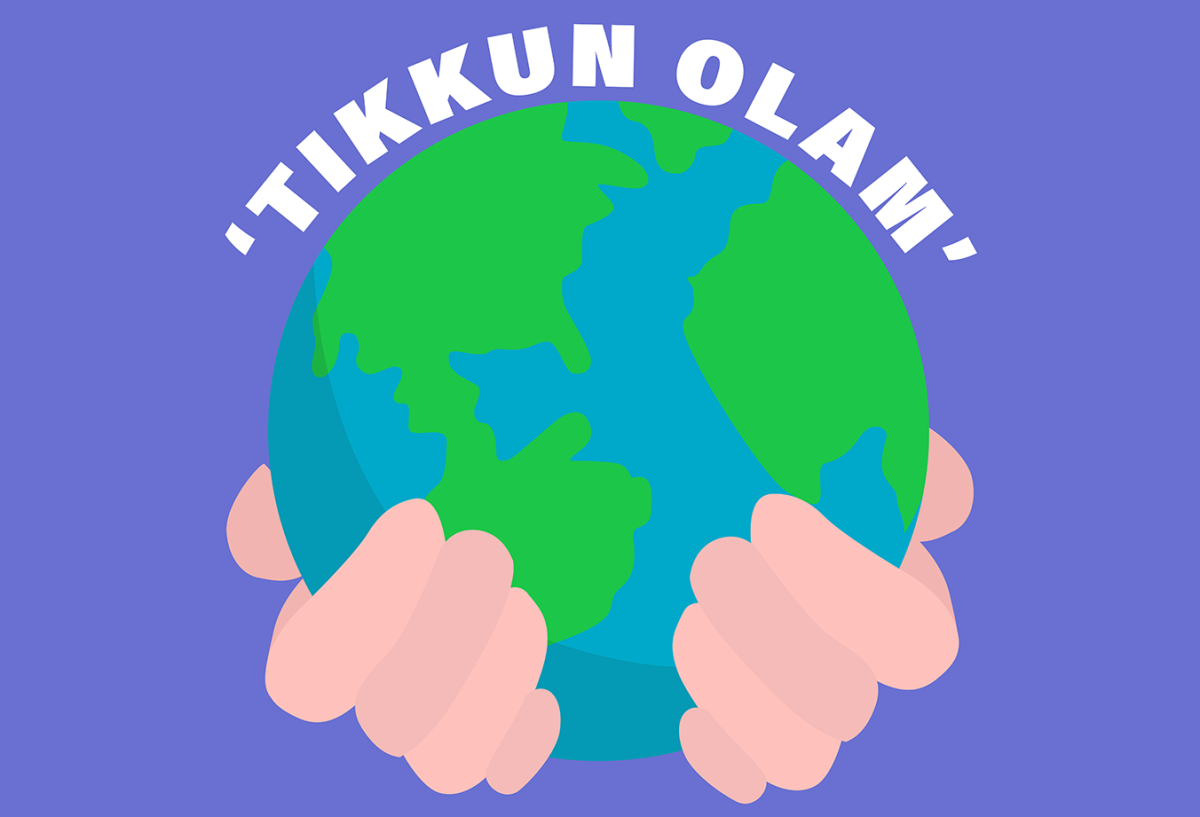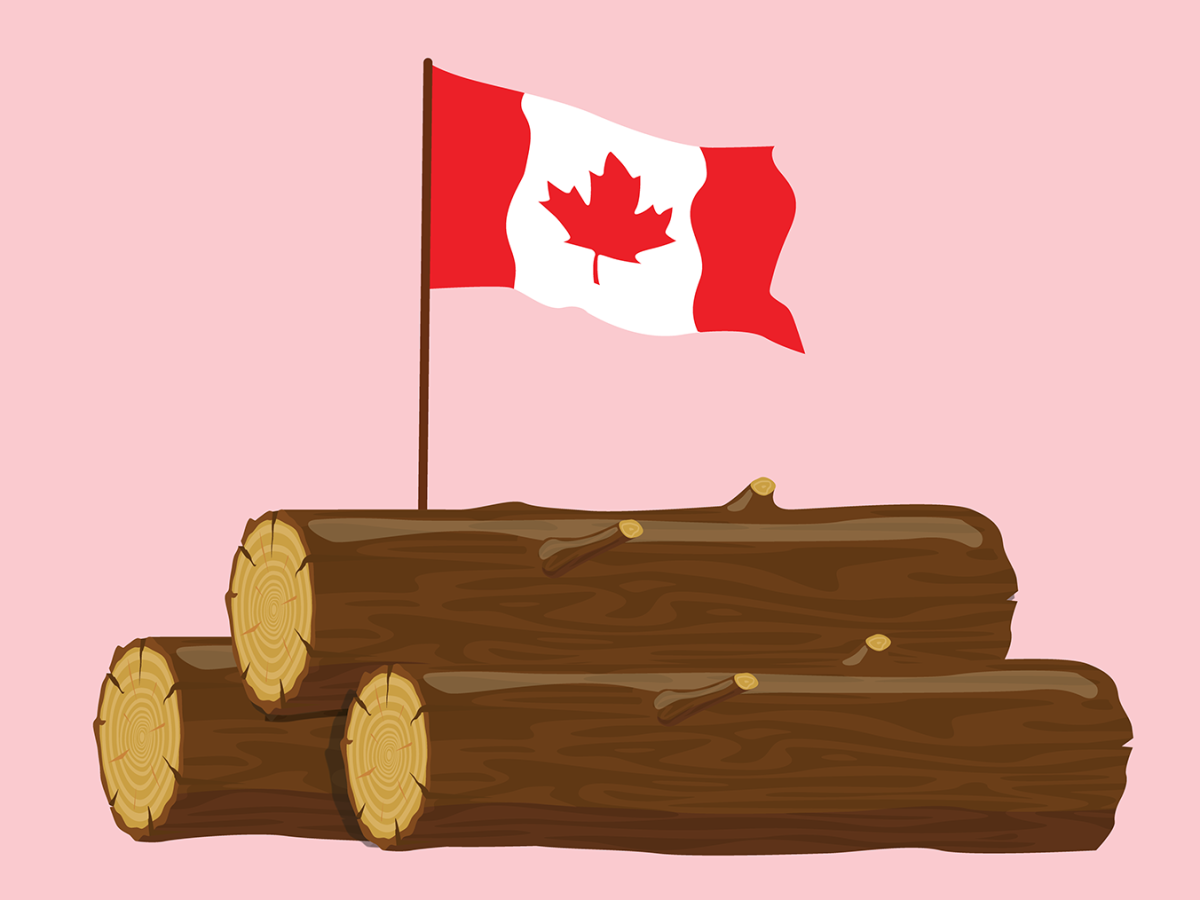My rabbis would always tell me that as Jews we have a duty to Israel. “Am Yisrael Chai,” or in Hebrew, spelled out עַם יִשְׂרָאֵל חַי, meaning “Let the people of Israel live,” is what I would often hear from members in my community.
For as long as I’ve been going to Sunday school, temple services and even attending Jewish summer camp, it was drilled into my head that Israel is supposed to be “our land,” and despite Palestine having territory there, it was still “our land,” or so I thought.
Jews are taught to always love thy neighbors, so we must always love and respect others, including Palestinian people. I was never told that Palestinians were evil. In fact, I was taught to fight for others, but there seemed to be an underlying meaning that the state of Israel was still top priority. Not Palestine.
I feel that I should emphasize how my opinion is incredibly nuanced because of my Jewish identity. This issue is more than just black and white. I am so thankful for my experiences that my background has brought me.
However, recently, I have felt like an outsider within my community for not fully supporting Israel. I still have so much to learn about myself and the world. How can I practice loving thy neighbor while injustices are being done to communities like mine?
I am of the belief that I can still support the state of Israel and also condemn the people in power who are putting Palestinian lives at risk.
I can do this and still denounce Hamas for equally putting people’s lives at risk.
Over the past couple of years I have seen this shift within my community that is overwhelmingly pro-Israel. I have often seen one-sided perspectives on what exactly Israel should do and be. The New York Times gave an interesting look into the generational divide between Jews and how many differing perspectives there really are in the Jewish community.
Personally, I do and will always have love for the state of Israel. With that being said, my love for Israel will not let me turn a blind eye to the horrors going on in Palestine.
The New York Times reported that South Africa has made a case to the U.N. that Israel is intending to commit genocide in Gaza. While Israel denies these claims, this case has me feeling all kinds of emotions.
On one hand, there may be some merit to the claims due to the level of violence and death occuring, however, I hesitate to call this a genocide because of the inherit antisemitism that comes from decades of vitriol and abuse towards the Jewish people.
When comparisons are made with the Holocaust, it feels like the nature of our horrifying past is undermined in order to prove that Jews are the problem.
An article from the Associated Press explored how harsh rhetoric made by members of the Israeli government is fueling the fire for genocidal claims. Using dehumanizing language such as “animals” against Palestinian people could be evidence to back up South Africa’s claims, but the current extremist Israeli government is not the same as the collective or individual response by the people.
While I condemn the attacks occurring now, people like Brazilian President Luiz Inacio Lula da Silva, comparing these attacks to the Holocaust erases the pain and trauma Jews have gone through and continue to struggle with. An article from Aljazeera reported Lula saying, “What’s happening in the Gaza Strip with the Palestinian people hasn’t happened at any other moment in history. Actually, it has happened: when Hitler decided to kill the Jews.”
The United States Holocaust Memorial Museum puts it into perspective. The museum stated in an article, “It is all too easy to forget that there are many people still alive for whom the Holocaust is not ‘history,’ but their life story and that of their families. These are not abstract tragedies.”
As people, I think we tend to forget how tragedy can shape a community forever, and constant comparisons to a tragedy such as the Holocaust does more harm than good. This sentiment is why I personally believe that we should be healing the world rather than resorting to violence. And that goes for people on both sides of the coin.
There is a Hebrew saying that means to repair the world — “tikkun olam” or in Hebrew, תִּיקּוּן עוֹלָם. Jews say this as a reminder that we have a duty to the world and our communities.
In this case, I want to practice “tikkun olam” by continuing to educate myself and remind people that this conflict is an issue for us all.
It is counterproductive to be divided. That won’t bring back lives or stop the conflict from continuing.
I encourage everyone to do your research, check in on your Jewish and Islamic peers, write your representatives and understand that peace in the Middle East will not happen overnight.

































































































































































